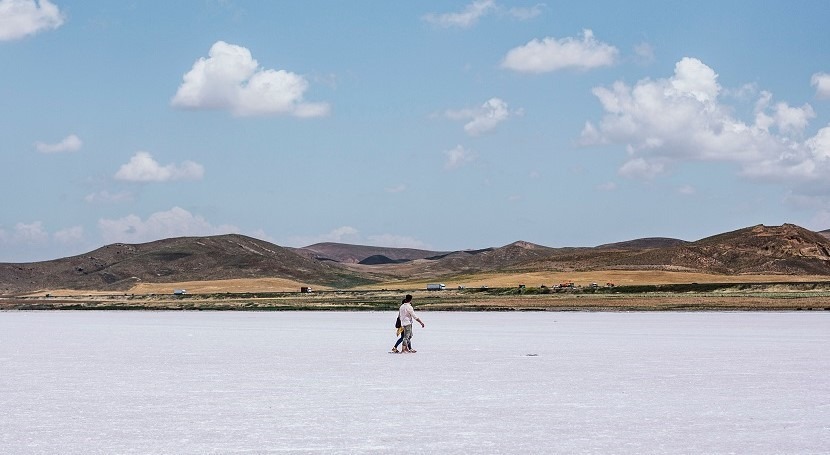Turkey’s second largest lake, Lake Tuz, dries up
Lake Tuz, the second largest in Turkey and one of the largest hypersaline lakes in the world, has dried up due to climate change-linked drought and groundwater overdraft for irrigation purposes, explains an AP article. Known for its colonies of flamingoes, last summer hatchlings and adult birds were found dead on the dry lake bed.
Turkey has been experiencing rising temperatures and decreasing rainfall; water scarcity is having an impact on farmers, and although water shortage was a concern in urban areas last winter, official data indicate the country’s three big cities have a secure water supply for the next 6 to 12 months despite the ongoing drought.
Other lakes in Turkey, such as Lake Meke, have also dried up or shrank to a great extent, due to low rainfall and unsustainable irrigation. Studies show water levels in Lake Tuz started to decline in 2000. The Konya basin, where Lake Tuz is located, in central Anatolia, was known for its cereal production, but farmers have turned to more profitable and water-intensive crops, leading to the depletion of groundwater resources. Poor agricultural policies play a role in the deterioration of the country’s lakes, according to environmental groups.
Groundwater overuse in the Konya Plain is also blamed for the formation of sinkholes in recent years, some of them as much as 150 metres deep. Levent Kurnaz, a scientist at Bogazici University’s Center for Climate Change and Policy Studies, said there are some 120,000 unlicensed wells in the region. In addition, because of the flat terrain, “it can rain as much as you want and it won’t replenish the groundwater in a short time. It takes maybe thousands of years in central Anatolia to replenish the underground water table,” he explained.
Turkey was one of the first countries to sign the Paris Agreement in 2016, but only ratified it earlier this month, making it the last G20 country to do so. Turkey argues that it should not be considered a developed country as part of the agreement, since historically it is responsible for a very small share of carbon emissions.














